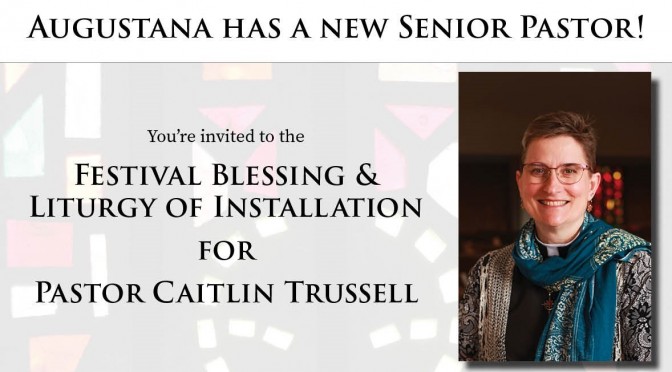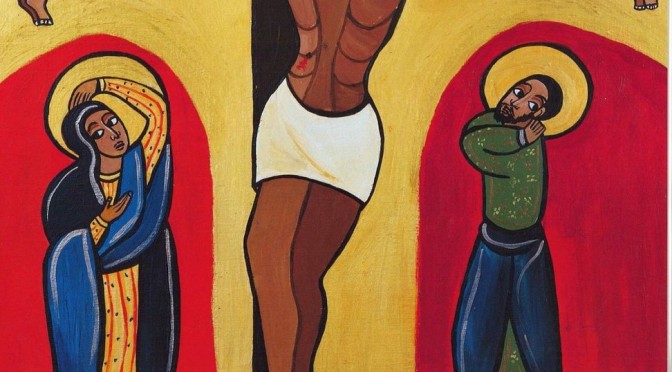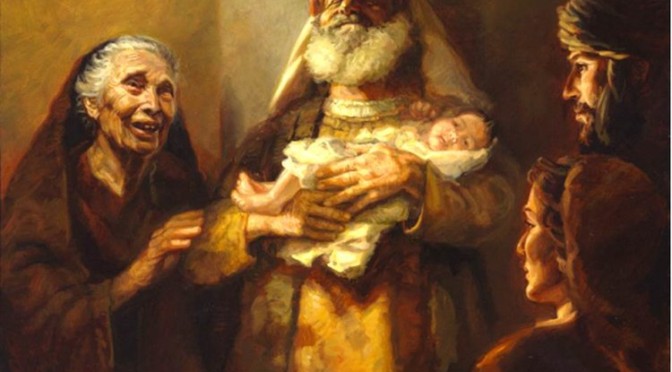Sermon photo: Bollywood Jane Ensemble in rehearsals
Photography By Matthew Cawrey
Caitlin Trussell with Augustana Lutheran Church on June 30, 2024
[sermon begins after a long-ish reading from Mark; see the Psalm and Lamentations reading at the end of the sermon]
Mark 5:21-43 When Jesus had crossed again in the boat to the other side, a great crowd gathered around him; and he was by the sea. 22 Then one of the leaders of the synagogue named Jairus came and, when he saw him, fell at his feet 23 and begged him repeatedly, “My little daughter is at the point of death. Come and lay your hands on her, so that she may be made well, and live.” 24 So he went with him.
And a large crowd followed him and pressed in on him. 25 Now there was a woman who had been suffering from hemorrhages for twelve years. 26 She had endured much under many physicians, and had spent all that she had; and she was no better, but rather grew worse. 27 She had heard about Jesus, and came up behind him in the crowd and touched his cloak, 28 for she said, “If I but touch his clothes, I will be made well.” 29 Immediately her hemorrhage stopped; and she felt in her body that she was healed of her disease. 30 Immediately aware that power had gone forth from him, Jesus turned about in the crowd and said, “Who touched my clothes?” 31 And his disciples said to him, “You see the crowd pressing in on you; how can you say, ‘Who touched me?’ ” 32 He looked all around to see who had done it. 33 But the woman, knowing what had happened to her, came in fear and trembling, fell down before him, and told him the whole truth. 34 He said to her, “Daughter, your faith has made you well; go in peace, and be healed of your disease.”
35 While he was still speaking, some people came from the leader’s house to say, “Your daughter is dead. Why trouble the teacher any further?” 36 But overhearing what they said, Jesus said to the leader of the synagogue, “Do not fear, only believe.” 37 He allowed no one to follow him except Peter, James, and John, the brother of James. 38 When they came to the house of the leader of the synagogue, he saw a commotion, people weeping and wailing loudly. 39 When he had entered, he said to them, “Why do you make a commotion and weep? The child is not dead but sleeping.” 40 And they laughed at him. Then he put them all outside, and took the child’s father and mother and those who were with him, and went in where the child was. 41 He took her by the hand and said to her, “Talitha cum,” which means, “Little girl, get up!” 42 And immediately the girl got up and began to walk about (she was twelve years of age). At this they were overcome with amazement. 43 He strictly ordered them that no one should know this, and told them to give her something to eat.
[sermon begins]
People say, “Laughter is the best medicine.” It’s up there, for sure. Laughing until your sides hurt and you’re out of breath is about as good as it gets. But spontaneous laughter comes out of nowhere. You can’t order it up at a drive through. It feels amazing partly because it’s so rare. Oh sure, other things might work – watching comedy, hanging out with a funny friend, flipping a laugh-a-day calendar. Laughing is a vital and strange human activity that makes us feel better in the moment and has lasting effects for the day. But is it medicine? Curative? Mmmm…that’s a stretch. So maybe not laughter, but what about faith? Is faith medicine? We’re in a church. It’s not a stretch to ask a question about faith especially when the Bible story serves it. The bleeding woman was healed by touching Jesus’ clothes. Jairus’ daughter is resurrected after he brings Jesus to her. Jesus talks about faith. Is faith a medicine? Does it heal? An even more terrifying question, is faith required for healing?
The bleeding woman and Jairus’ undead daughter could easily be used to say such things. But we know differently, don’t we. If faith in Jesus were the magic cure all, then the world would be Christian, and no one would suffer. Our faith would be enough to cure every disease and problem. We can see with our own eyes and feel with our own heartbreak that that is not how this works. That’s not how any of this works. We would never sit at someone’s deathbed and say, “Well, I guess they didn’t have enough faith.” Or say to a dear friend whose child has just died, “Shoot, if only you’d had more faith and asked Jesus for more help.”
Then what could Jesus mean when he ties together faith and suffering, or more to the point, faith and healing? In Mark’s Gospel, Jesus has already done a bunch of healing with touch and words. He cast out unclean spirits and calmed a storm on the sea. His holiness, his life-restoring power, his superpower, are on full display.[1] Jesus said to the bleeding woman, “Daughter, your faith has made you well; go in peace, and be healed of your disease.”
The Greek word sozo, translated in verse 34 as “made you well,” also means to be made whole; the word “healed” in this verse is a different Greek word. One interpretation is that being made whole by Jesus’ holiness, by the love of God, is different than being cured by medicine or other modern marvel.
When I was sick last year, I made a conscious decision to receive in love everything anyone said to me intending to be encouraging and supportive. Anyone, myself included, can say anxious, awkward things when someone we care about is sick and we try to say something rather than nothing. There were only two statements that I would reframe from my own faith: Everything happens for a reason and God doesn’t give you more than you could handle. I would say, “I know that some people find that idea comforting but for me, it’s more helpful to think that every situation is a chance for God’s love to be revealed.” Because sometimes the reason people suffer is environmental or genetic or behavioral or accidental and not of God at all. And there are incredibly stressful and horrific situations that are more than anyone can handle and certainly not of God. “Everything happens for a reason” and “God doesn’t give you more than you can handle” sound like they’re from the Bible but they are a common misinterpretation.
Without being aware that we’re doing it, we also jumble Bible verses like the reading from Lamentations today with stories like the bleeding woman and the undead daughter and think that God must be responsible for whatever terrible thing is happening. Lamentations is an important book that says something historical and specific about what was happening to God’s people in a time exile.[2]
Caution and care are necessary before we blame God for utterly human or earthly events, or carelessly mark God as a perpetrator of sin and suffering. The Bible’s book of First John says that, “God is love.”[3] If God is love, then God cannot be an agent of evil.
The Eucharistic Prayer during holy communion this summer says, “God of our struggles and celebrations, you have brought us this far along the way; you stayed with us in times of suffering and guided us on the path of love and light.” This prayer acknowledges God’s presence with us when we suffer. This is called the Theology of the Cross – God meets us in the darkest places and times of our lives. It’s one of many things that the cross means. The Eucharistic Prayer goes on to say that God “guided us on the path of love and light.” This part acknowledges that God’s holiness doesn’t make our lives perfect, stable or cured. God’s holiness makes our lives whole no matter what is happening in our lives. Our suffering will at times make us sad, angry, despairing, frustrated or whatever word you would give to your experiences. Faithful people are humans. We are human.
The peace offered by Jesus in our worst times can be felt deeply or not at all. It’s a peace offered by Jesus’ holiness, not our own. Wanting to live through a disease or injury, and doing everything in your power to be cured, means that we give ourselves a chance in the limited healing hands of modern medicine. Neither our determination nor our faith means we’re going to be cured. Our bodies are just too fragile. But our faith can help us to see our bodies and our diseases differently, to see God’s holiness differently.
Psalm 30 gives words to this holiness when the psalmist writes, “Weeping spends the night, but joy comes in the morning…you have turned my wailing into dancing.” The psalmist sings about pain and joy and God’s presence in the midst of it. Much like we do in worship when we sing and pray and sometimes even dance.
In worship, we learn God’s steps as we say prayers, sing hymns, and hear words in worship with language that comes directly from scripture. It’s like learning to dance.[4] When we take dance lessons, it takes a long time to make it look effortless. Not perfect. And, by the way, not actually effortless. That’s just what we get to see when a lifelong dancer dances. Living in faith and trust is like dance practice, formed week after week, day after day, by worship and scripture and Jesus’ holiness.
God is with us no matter how inelegantly we stumble through life and faith. God with us is God’s promise to us in Jesus. And we also have a good word to share with others about Jesus when our wailing and dancing move fluidly through the faith and cross of Jesus. Faith doesn’t make us superhuman. Faith helps us to acknowledge that we are oh-so-human. Not dredging up wholeness from within ourselves, but being made whole as Jesus heals our souls.
Thanks be to God and amen.
_______________________________________
[1] Matt Skinner, Professor of New Testament, Luther Seminary, St. Paul, MN. Sermon brainwave conversation about Bible readings for Sunday, June 30, 2024. Working Preacher’s Sermon Brainwave: Sermon Brainwave 971: Sixth Sunday after Pentecost (Ord. 13B) – June 30, 2024 (libsyn.com)
[2] Skinner, Ibid.
[3] 1 John 4:16a
[4] C.S. Lewis says this ever more elegantly. See his quote from “Letters to Malcolm: Chiefly on Prayer” here: A REFLECTION ABOUT WORSHIP – C.S…. – St. Aidan’s Anglican Church | Facebook
________________________________________
Psalm 30
Lamentations 3:22-33
The steadfast love of the Lord never ceases,
his mercies never come to an end;
23 they are new every morning;
great is your faithfulness.
24 “The Lord is my portion,” says my soul,
“therefore I will hope in him.”
25 The Lord is good to those who wait for him,
to the soul that seeks him.
26 It is good that one should wait quietly
for the salvation of the Lord.
27 It is good for one to bear
the yoke in youth,
28 to sit alone in silence
when the Lord has imposed it,
29 to put one’s mouth to the dust
(there may yet be hope),
30 to give one’s cheek to the smiter,
and be filled with insults.
31 For the Lord will not
reject forever.
32 Although he causes grief, he will have compassion
according to the abundance of his steadfast love;
33 for he does not willingly afflict
or grieve anyone.

![Dance Lessons [OR Your Faith Has Not Failed You When You Can’t Get Better] Mark 5:21-43, Psalm 30, and Lamentations 3:22-33](http://caitlintrussell.org/wp-content/uploads/2024/06/Dance-Bollywood-Jane_Ensemble-3_Photography-By-Matthew-Cawrey-1024x684-672x372.jpg)


![The Wonder of It All [OR Hope Dazzles on a Mountaintop] Mark 9:2-9](http://caitlintrussell.org/wp-content/uploads/2024/02/Transfiguration.Armando-Alemdar.Ara_.2004.GNU-Free-Documentation-License-672x372.jpg)
![Rise and Sing Again [OR Mortality, Music, and Meaning] – Ash Wednesday Joel 2, 2 Corinthians 5, and Psalm 51](http://caitlintrussell.org/wp-content/uploads/2023/02/Ken-Phillips-Banner-Art-3-of-12.--672x372.jpg)
![Be Light Because You Are Light [OR Bridesmaids, Pandemic, and Election are NOT the End of the Story] Matthew 25:1-13](http://caitlintrussell.org/wp-content/uploads/2020/11/Not-the-End-600x372.jpg)
![Knowing Enough to Hope [OR Knowing Enough to Be Dangerous] Romans 5:1-8](http://caitlintrussell.org/wp-content/uploads/2020/06/Peony-bouquet-2020-672x372.jpg)

![Entering the Easter Mystery [OR Life, Joy and Suffering] Luke 24:1-12](http://caitlintrussell.org/wp-content/uploads/2019/04/Resurrection-He-He-Qi-2013-672x372.gif)
![Joy and Suffering are All of a Peace [sic] Psalm 126 and 1 Thessalonians 5:16-24 (Luke 1:46b-55 and John 1:6-8 and 19-28)](http://caitlintrussell.org/wp-content/uploads/2017/12/those-who-sow-in-tears-shall-reap-with-shouts-of-joy-psalm-126-sermon-Caitlin-Trussell-672x372.jpg)